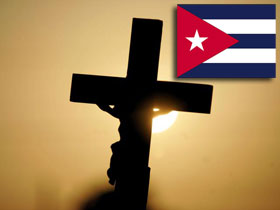

Released by the US Bureau of Democracy, Human Rights, and Labor.
This report is submitted to the Congress by the Department of State in compliance with Section 102(b) of the International Religious Freedom Act (IRFA) of 1998. The law provides that the secretary of state, with the assistance of the ambassador at large for international religious freedom, shall transmit to Congress "an Annual Report on International Religious Freedom supplementing the most recent Human Rights Reports by providing additional detailed information with respect to matters involving international religious freedom."
Cuba: The constitution recognizes the right of citizens to profess and practice any religious belief within the framework of respect for the law; however, in law and in practice the Government continued to place restrictions on freedom of religion.
There was no change in the status of respect for religious freedom during the period covered by this report. Overall human rights conditions remained poor. Some religious figures who criticized the Government's totalitarian system in sermons were subjected to intense harassment.
In general, unregistered religious groups continued to experience varying degrees of official interference, harassment, and repression. The Government maintained its policy of permitting apolitical religious activity to take place in government-approved sites. However, state security forces continued to subject to surveillance citizens worshipping in officially sanctioned churches, and the Government's continued its efforts to maintain a strong degree of control over religion. During the period covered by this report, the Government implemented new regulations that restricted the operation of house churches but eased its policy on issuing work permits to foreign Catholic clergy.
The relationship among religious groups in general was amicable.
The U.S. government attempted to raise human rights issues, including religious discrimination and harassment, with government officials; however, the Government refused to discuss such matters. The U.S. government continued to urge international pressure on the Government to cease its repressive practices. In Havana, officers assigned to the U.S. Interests Section engaged a broad range of religious leaders in discourse and on many occasions invited them to representational events.
Read the article made click in the title.
No hay comentarios:
Publicar un comentario